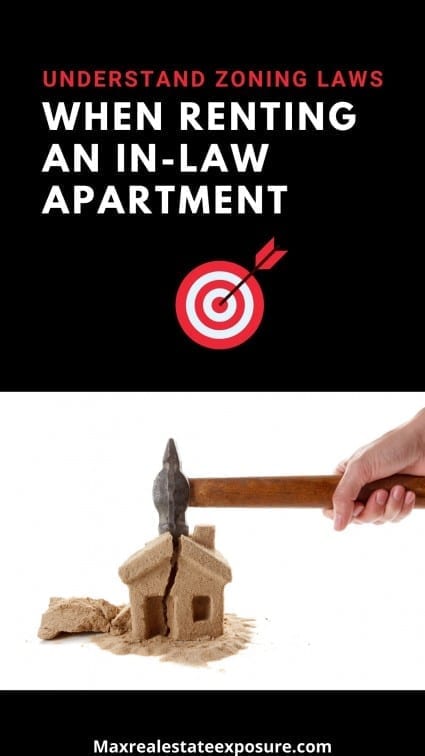Things to Think About Before Moving Forward
 Are you considering renting a room in your home? Renting a room is not uncommon, as one might expect. Lots of folks are looking to rent a room.
Are you considering renting a room in your home? Renting a room is not uncommon, as one might expect. Lots of folks are looking to rent a room.
You are not alone if you struggle to pay your monthly mortgage and other bills. Many homeowners find themselves in a similar situation.
For some, the answer is to rent a room in their house. Renting a spare room can generate extra income in living space you might not use.
Of course, renting out a room has its pros and cons. You get rent money, which can provide a much-needed cushion. But you have to find and manage a renter, which can be challenging.
While renting out your house is a much more common decision, renting out just a single room or two could be a better solution financially. As a landlord, you generate extra cash while getting to remain in your own home.
Deciding whether to rent a room in your home is a personal decision.
Renting a Room Has Become Far More Popular
Over the last decade, renting a room or rooms in a house has become much more prevalent. According to Pew Research, there are more households today with either a student, someone who is not the head of the family, or an unmarried partner.
According to studies, more people live in a shared household today than ever.
Here are some things you should know before you make up your mind.
1. It Offers Some Serious Benefits.
There are multiple potential benefits to renting a room out in your home, including:
Earn Income From Your Property
Earning money is the most obvious and usually the most desirable benefit of renting a room. You get regular income in the form of rent from your tenant.
You can use this money to help pay your mortgage, pay off debt, and cover expenses. If you don’t need the money to cover bills, you can invest it in savings. Who knows, if the tenant falls in love with your place, they may even want a rent-to-own agreement.
Help Around The House
Some homeowners value help around the house as much or more than they do rent money. If you want a tenant who will handle tasks in and around your home, you could offer a discounted rental rate for their extra work.
Having someone handy and who knows their way around a tool belt can be a godsend for some folks.
Peace of Mind
Some senior homeowners choose to have a renter because it offers peace of mind. They like knowing that if they need help, someone will be there to provide it. Renting a room for family members can be even more beneficial, as you probably know their living habits. Following house rules will hopefully be less of an issue.
Having Company
If you have had a partner for a long time and suddenly don’t, you may need to have others around. Renting a room in your house provides that person who could become a great friend.
2. You Have to Weigh The Benefits Against The Drawbacks
Getting extra money and help around the house is well and good, but it does come at a cost. Some of the potential concerns you might have about renting a room out could include:
The Safety Aspects
Unless you rent a room to a friend or family member, you probably don’t know much about the person you are letting into your home.
You give them a key and permission to be in your home at all hours – which could allow them to steal your things or allow potentially dangerous people into your home.
Vetting your roommate is going to become a serious consideration. You might want to consider a property manager to help vet tenants when renting a spare bedroom.
You May Have Lifestyle Differences
If you are the kind of person who likes to be in bed by nine and rent to a college student who loves to party, you will run into lifestyle differences that may be insurmountable.
It’s possible that the roles could be reversed, too. If you are a noisy night owl and rent to someone who needs to be up at five each morning, you will also have problems. Both landlords and tenants need to give lifestyle differences some serious thought.
Cleanliness and Order Around The House
Do you usually keep your home like it is being staged for sale?
This is a significant factor for some homeowners that makes renting to others difficult. If you like to keep a clean and orderly home and rent to a messy person, you will get irritated and frustrated. The renter will unlikely change on your account, either, so you may be stuck with your frustrations until the lease runs out.
Bad Habits Could Be Present
Checking things upfront that you might have a significant problem with, like smoking, will be vital. Whether it is cigarettes or marijuana, if either makes you uncomfortable, you’ll regret leasing a room to someone who does.
When you rent a room, doing your due diligence is vital.
3. You Must Adhere to Local Rental Laws.
 Your city or municipality laws will specify what you can and cannot do as a landlord. You may be able to rent out a room – but only if you provide the tenant with running water and plumbing.
Your city or municipality laws will specify what you can and cannot do as a landlord. You may be able to rent out a room – but only if you provide the tenant with running water and plumbing.
You may also have to have a window in the room big enough for the renter to exit from in case of an emergency. Or you may not. It all depends on your local laws. Understanding the definition of a bedroom could become critical.
Before you put an ad on Craigslist for a tenant, you want to learn what local laws apply to you and ensure you adhere to them. Otherwise, you risk running into trouble, getting fined, and other hassles that will wipe out any benefit of renting the room.
4. The Rules of a Homeowners Association Could Matter.
If you are part of an HOA, you likely also have rules you must follow as part of the association. Your HOA probably has specific guidelines for renting out rooms in your home. Ignoring those rules is just asking for trouble – because eventually, one of your neighbors will recognize that you are renting a room and report you.
Some homeowners associations will discourage short-term rentals and may need a long-term lease agreement. Many HOAs ask for a minimum of a year lease.
Before renting a room in your house, you want to know what laws apply to you and what hoops you may need to jump through. That way, you can move forward without worrying about getting in trouble, being fined, or having similar problems.
Keep these things in mind when you rent a room.
5. Your Insurance Provider Will Have Rules
Insurance companies write policies for specific situations. Those specifics are what dictate your coverage and your insurance rates. If you change the details – like renting out an extra bedroom to a tenant – then your insurance coverage may not be sufficient to protect you from liability.
You need to speak with your insurance company about your decision to rent to a tenant so they can give you feedback and let you know what to expect from them.
Some insurance companies may not make a big deal out of your decision. They may not even change your insurance policy or your rate. But others will decide to rewrite your policy and raise your rate.
Not telling your insurance company can get you into a bind if you need to make a claim. If you file a claim and they find out you have a renter – and they probably will – they could deny your request.
You want to avoid such a situation, so speak to them before renting.
If your insurer finds out you have a tenant, they could also ask you to get landlord insurance, which usually costs 15% to 20% more than homeowners’ insurance.
Insurance coverage should always be top of mind when you rent a room.
6. Renting a Master Bedroom Will Generate More Income.
Most homeowners start renting their second bedroom while living in the master bedroom with an ensuite bath. Having a private bathroom offers considerable benefits. This is the most comfortable configuration.
The tenant gets the smaller room and has to walk through the hall to get to the bathroom. But to maximize your rental income, you might consider renting your master bedroom instead.
If you rent the master bedroom with an attached bathroom, you can charge higher rent – sometimes much more.
You may be fortunate enough to have a basement containing a bedroom and a bathroom – maybe even a kitchenette or small kitchen. If so, you can rent the whole basement as an apartment. This is especially true if the basement has a separate entrance.
Ultimately, you must decide if your comfort is worth more than the rent you could make. If you want to get the most rent, offer the best room in the house. But if you don’t want to sacrifice your comfort for more money, that’s ok, too. It’s your house, after all.
7. When Renting an In-Law Apartment – Know The Zoning Laws.
 When renting out more than just a room, knowing the zoning laws in your city or town is vital because you could be violating them.
When renting out more than just a room, knowing the zoning laws in your city or town is vital because you could be violating them.
If you live in a single-family home and have an in-law apartment, renting it out to someone unrelated could be illegal. Doing so could violate local zoning by-laws.
Having a multi-family is not the same thing as having an in-law. Some people try to skirt the laws in many communities and rent their homes to multiple people.
It is not uncommon for a neighbor to report folks to the local housing authority when rental property housing laws are violated.
8. Take Advantage of Strategic Listing Options.
What is the best site to rent a room?
There are options for listing your room for rent that offer more customization and screening options than the standard Craigslist ad. The following platforms offer listing rooms that help you connect with potential tenants with similar lifestyles and habits.
You should consider these roommate finder services.
They are kind of like online dating sites. You answer many questions about what you like and don’t like, and potential tenants do the same. Then, the platform connects you with those who responded to questions in ways that indicate they share many of your preferences.
When you want to rent a room, these services could be helpful.
9. Try to Give a Complete Picture of Your Rental Listing.
When renting a room, it is best to be truthful and accurate. You want to put everything on the table with your listing so you don’t surprise potential renters, and they don’t surprise you.
Ensure you take high-quality pictures of the room that give a good idea of what it’s like.
Explain in your listing what you are interested in sharing with the new roommate, such as your swimming pool, laundry room, and kitchen.
You know what you want and don’t want to share – let them know, too. That way, they don’t come to look at your room for rent and think they will get something they aren’t.
Writing a good listing description takes effort but is ultimately worth it. Save yourself unnecessary headaches by being comprehensive from the start.
Tips to Rent a Room in Your House
 Here is some of the best advice when renting rooms in your home.
Here is some of the best advice when renting rooms in your home.
Prepare Your Home For Renting
Like selling a home, you will want to show it exceptionally well. You will want to remove all the clutter and do a deep cleaning. Pay particular attention to the kitchen, bathrooms, and family room. The actual rental space should be extra clean.
What Rooms in The House Will You Be Renting?
Figure out what area of the home you’ll be renting out. A game plan before inviting potential tenants into your home will be essential. The tenant will ask what’s included, so ensure you know how you’ll respond beforehand.
Know Your Ideal Tenant Upfront
Knowing the kind of renter you wwantin your home is essential.
For example, some of the considerations could be the following:
- A non-smoker
- Someone without pets
- No past evictions
- No past criminal convictions
- Someone who pays their rent in a timely fashion
How Much Will You Charge?
What will you charge to rent a room, and will there be any negotiating? It will be essential to see the local rates for renting a room in your home. You’ll want to be competitive with rents in the market. Long-term rates could be higher if you’re in a college town.
Advertising a Room Rental Accurately
It would be best to be upfront about what you will include and won’t tolerate. For example, ensure your advertisement says so if you don’t allow smoking. Are you looking for short-term guests or something more long-term?
Know Fair Housing Laws
Remember, fair housing laws. Remember that you cannot discriminate when renting a room on your property. You cannot discriminate based on race, sex, religion, familial status, disabilities, national origin, or ethnic background.
The Fair Housing Act prohibits all of these things. Here is some helpful info on the fair housing laws. You can get into legal trouble when there is any discriminatory language in your advertisements. Doing so is a violation of Federal Fair Housing Laws.
Get Tenant References and Check The Credit
Two of the most crucial tasks when renting a room and screening tenants will be getting a credit check done and having them provide references. Your renter needs to have a good credit score. Be cautious of anyone looking to rent a room cheap, as this could be a bad sign of not paying their rent.
Do a Background Check
Once you have narrowed your selection process, you might want to do a background check. When you rent a room, this is a must. Doing so will allow you to see if there is anything negative you should know about the person living with you.
Landlords are required by the Fair Credit Reporting Act to use a Consumer Reporting Agency (CRA). A CRA must maintain specific privacy standards to protect you and your tenant.
When turning down a potential tenant because of something discovered in their background check, you are required by law to provide a reason. The Consumer Financial Protection Bureau (CFPB) states that a landlord must give the tenant an adverse action notice with the name and contact information of the consumer reporting agency that the landlord got the consumer report.
Have a Room Rental Agreement
Another intelligent consideration when renting a room is to have a written agreement. The contract should detail all the terms, much like renting out your home.
Be specific about the tenant’s responsibilities, such as pitching in with mowing the lawn or shoveling the walk. Having a local real estate attorney draw it up would be wise. Part of what a real estate attorney does is protect your interests.
Another critical point of discussion may be the tenant having guests. Can you imagine having a tenant with a boyfriend or girlfriend who leaves in the middle of the night, waking everyone up?
Include Housing Expectations and Rules
There should be a clear understanding upfront between landlords and tenants. Living together means abiding by the house rules. A tenant should know the rules before signing an agreement.
For example, some of the everyday things to discuss would be the following:
- Use of common space
- Hours when the house must be quite
- Times when guests of the tenant can come and go
- What are the shared amenities such as kitchen, bathrooms, patio, deck, garage, etc?
A Complete Understanding of Rental Expenses
Another crucial upfront discussion should be how the utilities, including heat, electricity, cable, etc., will be split.
Collect a Security Deposit
It would be best to collect some money if damage is done to your property.
Get a Condition Statement Form Signed
The tenant should fill out a condition form that identifies any issues with the space they are renting, such as dings on the wall or other imperfections. The statement will be reviewed before the tenant moves out to see if necessary repairs need to be made or get their security deposit back.
Your Rental Agreement Should Contain These Things
When renting space in your home, the agreement should cover the following items:
- How much will you be charging the tenant?
- What date will the rent payments be due?
- Whether the tenant will share in the cost of the utilities, and if so, what percentage?
- How will common areas be handled?
- Will the tenant share in responsibilities for upkeep around the home?
- Will the tenant have access to the entire property?
- Any restrictions of use at the property. For example, taking a space in the garage if one exists.
Don’t Forget About Tax Consequences.
Remember that you will be collecting rent, which is considered taxable income that should be reported to the IRS. You should also be aware that you may also have some rental deductions that can be claimed with a room rental. For example, did you replace the carpet in the bedroom during the tenancy?
Items you may deduct from your taxes include advertising, insurance, repairs, cleaning and maintenance, supplies, utilities, depreciation, mortgage interest, condo fees, etc. Ensure these items are included in your tax return so these deductions offset your taxable rental income.
It would be a shame to miss anything that is deductible.
Investment Property vs. Primary Residence
Please also remember that tax laws will apply based on whether the home is a rental or a primary residence. Both real estate investors and traditional property owners must know the current tax codes.
Rental expenses must be tallied based on the part of the house you live in vs. the amount you rent out. It is either done on a room basis or a square footage basis.
So, you will need to calculate the square feet of the area you’re renting out vs. the living space you’re not. For example, if your house is 2000 square feet and you’re renting out a 200 square foot room, 10 percent of the house is rented out.
Using a room count method, twenty percent of the home is being rented if you have ten rooms and rent out two of them. You could also qualify for the new pass-through tax deduction with the Tax Cuts and Job Act.
Business owners other than a regular C Corporation may deduct as much as 20 percent of their net business income from their taxes(subject to certain income levels).
Renting an extra room to short-term guests can qualify as a business when you profit. The provision in the tax code lasts until 2025.
Problems You Could Run Into Leasing a Room
Remember that state landlord-tenant laws apply whether you are renting month to month or have signed a lease.
One of the most significant problems you could run into when renting out a part of your home is the tenant not leaving. Sometimes, tenant relationships change for any number of reasons. Other times, your finances change, or you no longer need to rent a room.
You ask the tenant to leave at the expiration of the tenancy, and they don’t. Unfortunately, landlord-tenant laws heavily favor tenants in most states.
The established legal rights for tenants often don’t make any sense. It could take you months to get the tenant out of your home. The eviction process, at times, can end up being costly.
Can you imagine what the tension would be like in a situation like this? Renting a room has pros and cons, which would be a significant disadvantage! Selling a home with tenants can also be extremely difficult.
Tenants can make your life miserable by doing things to stop your sale. Remember, they don’t want to leave!
Renting a Room Near Me
Do you need to rent a room in a home? If so, you are probably looking for the best way to find this kind of rental opportunity. Besides asking friends and family, an online search is one of the best methods.
I suggest using Google to search for rooms to rent in a house. You can search rent a room near me or rent a room nearby. Doing this search should provide any rental results in your general area. Finding room rentals is challenging, so be patient if nothing comes up.
Don’t expect to rent a room cheaply if you live in an affluent area.
Final Thoughts
Without a doubt, there can be upsides and downsides to renting out a room in your home. Hopefully, after digesting these tips, you can better understand some essential considerations.
When you want to rent a room in your house, it’s worth investing the time to find a tenant who will respect your home as if it were theirs. Potential tenants should also realize how vital it is to treat someone’s property how you expect yours to be treated.
Landlords need to remember they should respect a tenant’s privacy. If the bedroom door is closed, it should not be entered without permission unless there is an emergency. If there are locks, they should be respected.
Mutual respect goes a long way when sharing space in a house.
Best of luck!
About the author: Bill Gassett, a nationally recognized leader in his field, provided the above Real Estate information about renting a room in your house. Bill can be reached via email at billgassett@remaxexec.com or by phone at 508-625-0191. Bill has helped people move in and out of Metrowest towns for 37+ years.
Are you thinking of selling your home? I am passionate about Real Estate and love sharing my marketing expertise!
I service Real Estate Sales in the following Metrowest MA towns: Ashland, Bellingham, Douglas, Framingham, Franklin, Grafton, Holliston, Hopkinton, Hopedale, Medway, Mendon, Milford, Millbury, Millville, Natick, Northborough, Northbridge, Shrewsbury, Southborough, Sutton, Wayland, Westborough, Whitinsville, Worcester, Upton, and Uxbridge MA.

